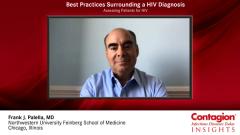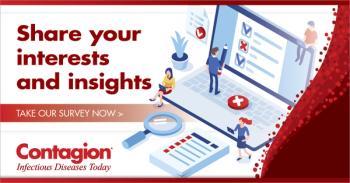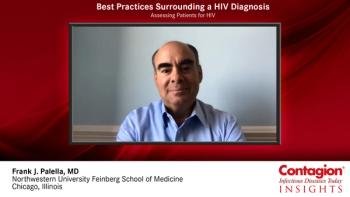
Managing HIV Treatment-Related Adverse Events
Adverse events associated with novel treatment regimens used to manage HIV infections, and advice regarding strategies that can be used to monitor for and manage patients.
Episodes in this series

Frank J. Palella, MD: The potential adverse effects associated with therapy are diverse, and they vary from medication to medication. In general, the more modern therapies that are recommended as first line, included either as single agents or, more commonly, as part of fixed-dose combinations, are better tolerated. For example, as recently as 5 to 7 years ago, individual drugs that were considered first line and no longer are include medications like zidovudine, or AZT; efavirenz, which was part of the first fixed-dose combination single-tablet regimen; and boosted protease inhibitors like lopinavir.
All these medications I’ve just mentioned are no longer considered viable first-line therapies. Not because they didn’t work, but because they were poorly tolerated for a number of reasons, such as GI [gastrointestinal] tolerability, bone marrow suppression, sleep disturbance, depression, and even suicidality. Considering the potential adverse effects associated with a prescribed regimen has to be paramount in the mind of the prescriber. These days, the most commonly encountered adverse effects tend to be of low severity and low grade and are often transient. They differ for different medications, but include, let’s say, mild GI intolerance, mild nausea or mild loose stool or diarrhea, a low percentage of rash, and the possibility of sleep disturbance. These also might include the possibility of modest abnormalities with liver function and kidney function. These are things that we can look for, that we can ask patients about, and they largely do not comprise with the most modern regimens: treatment-limiting obstacles to the achievement of stable therapy and virologic suppression over the long term.
Transcript edited for clarity.
Newsletter
Stay ahead of emerging infectious disease threats with expert insights and breaking research. Subscribe now to get updates delivered straight to your inbox.































































































































